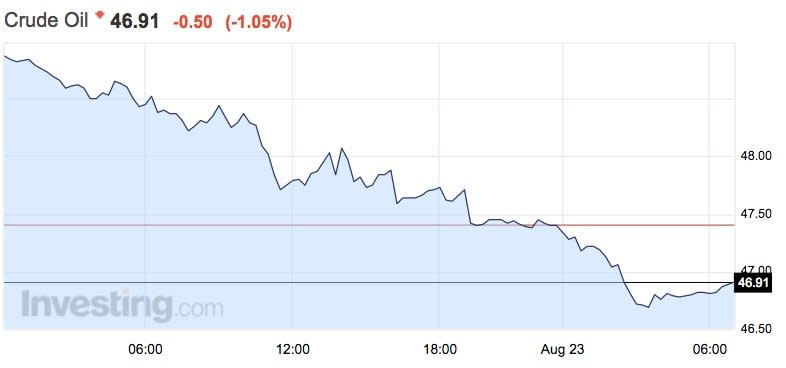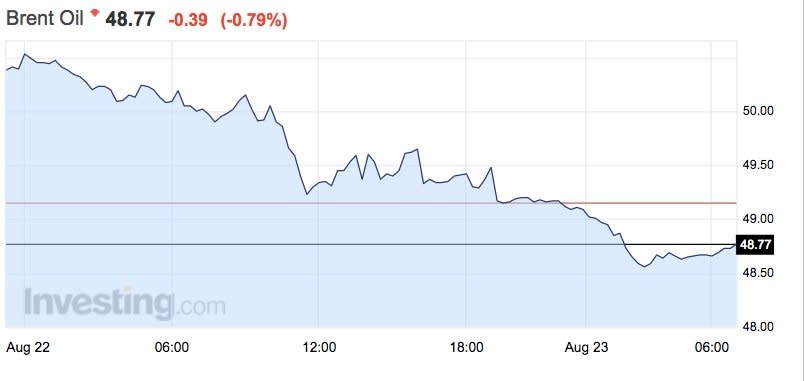Oil prices are falling down a hole for one major reason
Oil prices are slipping downward because the market is still oversupplied, according to analysts.
Crude oil fell by over 1% on Tuesday, below $47 a barrel, after already tumbling by nearly 3% the day before:

Investing.com
The forward oil contract, Brent, also fell below $49 a barrel:

Investing.com
Oil prices had started to recuperate and officially enter a bull market last week. Prices even hit an eight-week high and were above $50 a barrel.
While this is still massively below the highs of June 2014, when oil prices were trending above $100 a barrel, the oil market was banking on renewed hopes of a global supply cap.
Oil prices are historically weak because supply is flooding the market. Saudi Arabia, which produces so much oil that it has the power to move prices, is the largest country in the 13-member OPEC cartel of oil producers and has been pumping out oil at record levels despite oil prices being in mid-double digits.
The oil price, however, is now being supported by renewed hopes that Saudi Arabia and Russia could try to stabilise the world's most important commodity. Saudi Arabia's energy minister, Khalid al-Falih, on Thursday said the country was ready to take "any possible action" to rebalance the oil market.
But according to a note from Goldman Sachs, investors should not get too excited because the market still is awash with oil, skewing the fundamentals:
"While oil prices have rebounded sharply since Aug. 1, we believe this move has not been driven by incrementally better oil fundamentals, but instead by headlines around a potential output freeze as well as a sharp weakening of the dollar (and exacerbated by a sharp reversal in net speculative positions)."
And for this reason, Goldman Sachs said it saw oil averaging $45 a barrel for this year.
NOW WATCH: KRUGMAN: Financial markets aren't taking a Trump victory very seriously
See Also:
SEE ALSO: Oil is getting crushed
DON'T MISS: Here's proof that Saudi Arabia doesn't care about killing oil prices — only the competition

 Yahoo Finance
Yahoo Finance 
